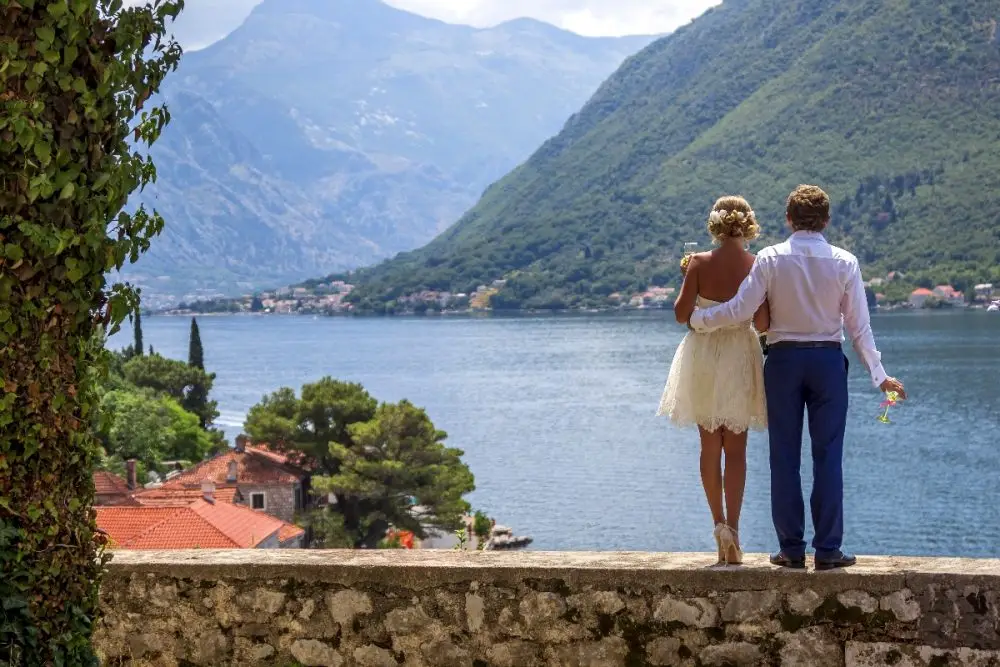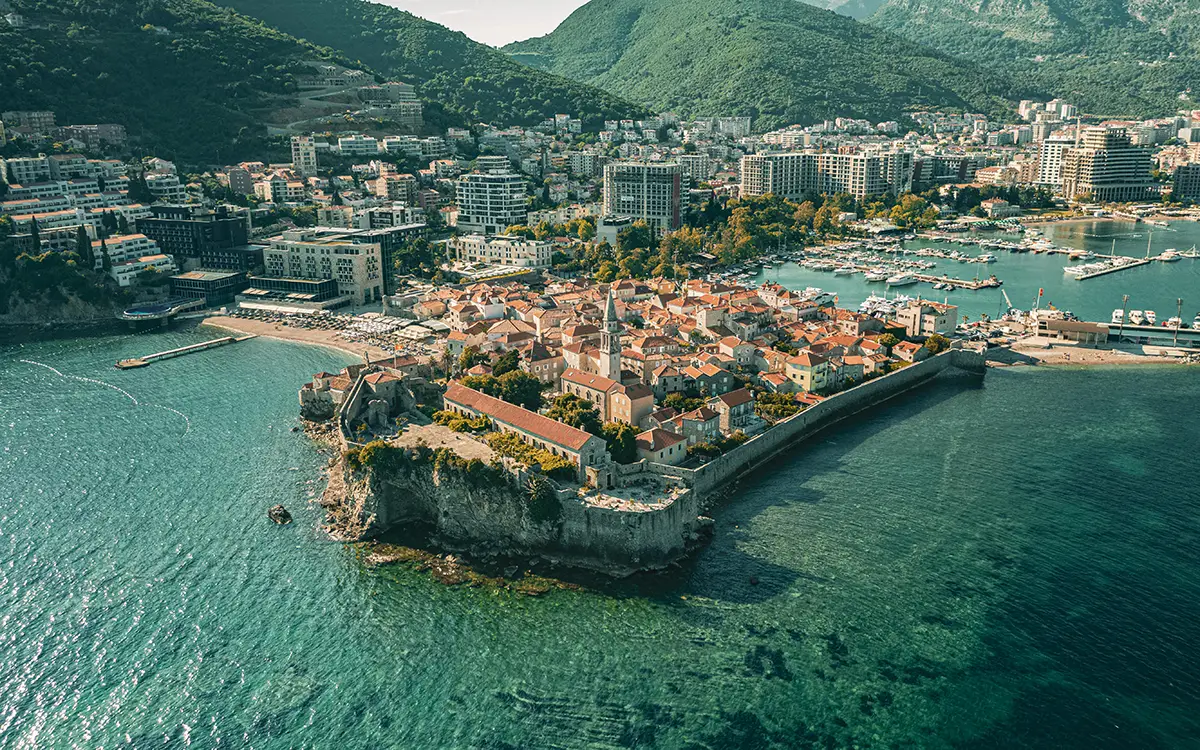Mediterranean climate, mountain landscapes, developed infrastructure, and direct access to the sea — all make the Adriatic state attractive for those considering buying real estate in Europe. But is it worth buying property in Montenegro from the perspective of investment, relocation, or renting out? The answer depends on goals, budget, risk approach, and understanding of the local market. Below is a detailed overview of the advantages and limitations for those considering the Balkan country as a base or investment direction.
Balkan Tourist Center: Tranquility, Openness, and Tourist Growth
Over the past decade, the country has consistently been among the most visited destinations in the Balkans. Resorts like Budva, Bar, Kotor, Tivat, Herceg Novi, and Ulcinj attract hundreds of thousands of tourists annually. The Balkan country remains an independent state with its own currency (Euro), active support for foreign investors, and orientation towards European standards.

The growing tourism industry creates a stable demand for short-term and long-term rentals. This is why investing in Montenegro real estate seems like a logical step for those looking to generate income or securely place capital.
Property Prices in Montenegro: Affordable with Potential
Is it worth buying property in Montenegro? Compared to Croatia, Italy, and Greece, property prices in the Montenegrin state remain at a moderate level. In coastal areas, the price per square meter ranges from 1800 to 3500 Euros, while in the mountains it ranges from 800 to 1500. It is important to understand that the price depends on the distance from the sea, infrastructure availability, and year of construction.
Affordable prices allow entry into the market even with a limited budget. Property in Montenegro can be purchased for vacation purposes or with a view to long-term rental. There has been no overvaluation yet, and the market remains growing.
Advantages of Buying Property on the Coast
One common question is whether it’s worth buying property in Montenegro by the sea. The Adriatic coast is a key region of the country where the best projects are concentrated. Proximity to beaches, restaurants, marinas, and tourist routes makes such properties particularly attractive from an investment perspective.
Many expats and travelers consider the Budva Riviera and the Bay of Kotor as ideal places for living and leisure. The presence of direct flights is a plus: the airports of Tivat and Podgorica receive flights from most European countries, including Russia and the CIS.
Property in the Mountains: Seclusion and Tranquility
For those who value privacy, nature, and tranquility, real estate in the mountainous regions of the country is suitable. Such homes are ideal for winter vacations, remote work, or living away from tourist hustle and bustle.
Local villages in the areas of Zabljak, Pluzine, or Kolasin combine an alpine climate, panoramic views, and access to ski resorts.
Benefits of Foreigners Buying Property
Foreigners have full rights to own property in the country. Restrictions only apply to agricultural land. The property can be registered to a physical or legal entity. The purchase procedure is transparent, all documents are processed by a notary, and transactions are registered in the state registry.
The question of “whether to buy property in Montenegro” is closely related to the possibility of comfortable living. Owning an apartment or house entitles one to obtain an annual visa and open a personal bank account. Some investors use real estate as an argument for obtaining a residence permit.
Is it Worth Buying Property in Montenegro: Advantages of Purchase
Below are the key arguments in favor of acquiring property in the Balkan country:
- stable currency — Euro;
- low property ownership taxes (0.1%–0.5% of the value per year);
- openness to foreign investors;
- direct property ownership without restrictions;
- rich cultural heritage and safe environment;
- quality projects in new residential complexes;
- access to nature: sea, mountains, lakes, forests;
- simple transaction language and short registration process.
The advantages are listed from both an investment perspective and for personal comfort: living, leisure, relocation, renting out.
Drawbacks and Limitations to Be Aware Of
Before making a purchase, it is important to consider potential challenges. Below is a list of points requiring attention:
- bureaucracy in certain municipalities;
- high costs for repairing old properties;
- not always transparent rental schemes with management companies;
- possible interruptions in utility services in remote areas;
- unfamiliar market and local registration specifics;
- weak protection of tenants’ and investors’ interests in case of disputes.
Despite the openness, investing in Montenegro apartments is advisable only with consultation from a lawyer and choosing a reliable agency.
Is Buying Property for Income Worth It?
The profitability of renting out depends on location, season, and property condition. In coastal areas, short-term rentals can yield 6–8% annually, higher with proper management. In the mountains and inland areas, the profitability is lower, but capital growth is possible due to increased tourist interest.
If the goal is to combine leisure and profit, it is optimal to buy property in Montenegro by the sea but use a property management company. This will relieve the owner of the burden and ensure income stability. Passive investment is possible with proper legal documentation.
Growth Potential and Future Prospects
Montenegro’s jurisdiction is actively moving towards joining the European Union. This factor increases investment attractiveness. Infrastructure is improving, roads are being repaired, and new residential projects are growing along the coastline.
The question of “whether to buy property in Montenegro” is gaining strategic importance. Real estate investments can not only generate income but also serve as a channel for capital legalization and in the future — a platform for expanding residency rights.

Is It Worth Buying Property in Montenegro in 2025?
Stable political situation, tourism growth, moderate prices, and the country’s European orientation create a positive investment climate. Owning a house or apartment in the Balkans is not only a way to preserve funds but also an opportunity to build an alternative lifestyle.
For those seeking a balance between risks and benefits, a reasonable entry point, and consistent demand, the answer to whether it’s worth buying property in Montenegro is affirmative. It is important to approach the purchase consciously, verifying documents, choosing a reliable developer, and focusing on long-term results.
 en
en  ru
ru  de
de  ar
ar  es
es  nl
nl  hi
hi  fr
fr  it
it  pt
pt  el
el 












